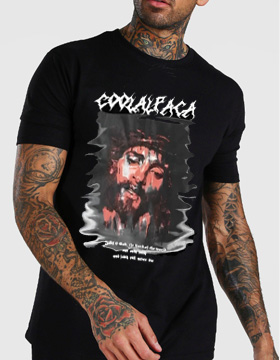Does a Clothing Factory Need ISO 9001 Certification?
Does a Clothing Factory Need ISO 9001 Certification?
Ensuring consistent product quality is a critical concern for clothing brands and wholesalers. When working with various manufacturing partners, maintaining high standards can be challenging. This is where ISO 9001 certification comes into play. But do clothing factories really need it?
Yes, a clothing factory can greatly benefit from ISO 9001 certification, although it is not mandatory. ISO 9001 ensures that the factory follows a rigorous Quality Management System (QMS), reducing the risk of producing substandard goods and enhancing customer satisfaction. For clothing brands and wholesalers, partnering with an ISO 9001-certified factory can be a key factor in maintaining consistent product quality and reliability.
ISO 9001 certification offers more than just quality assurance; it also brings operational efficiency and global recognition. Below, we explore why ISO 9001 certification is essential for clothing factories and how it can benefit both manufacturers and their clients.
What are the ISO Standards for the Garment Industry?
The garment industry is governed by several ISO standards that ensure quality, environmental sustainability, and workplace safety. Among these, ISO 9001 is the most recognized, focusing on Quality Management Systems (QMS). Other important standards include:
ISO 14001: This standard addresses Environmental Management Systems, helping factories minimize their environmental impact.
ISO 45001: This standard focuses on Occupational Health and Safety Management Systems, ensuring safe working conditions.
Each of these standards plays a vital role in the garment manufacturing process, but ISO 9001 stands out as the benchmark for quality management.
Why Should a Clothing Factory Consider ISO 9001 Certification?
ISO 9001 certification is a mark of excellence that signals a factory's commitment to quality. For clothing factories, this certification can lead to several advantages:
Improved Product Quality: By adhering to ISO 9001 standards, factories implement robust processes that minimize defects and ensure consistent quality across production runs.
Customer Trust: Brands and wholesalers are more likely to partner with ISO 9001-certified factories, knowing they adhere to stringent quality standards.
Operational Efficiency: The structured approach of ISO 9001 helps streamline operations, reducing waste and improving overall efficiency.
In a competitive market, ISO 9001 certification can be a key differentiator, helping factories attract and retain high-value clients.
How to Implement ISO 9001 in a Textile Industry?
Implementing ISO 9001 in a clothing factory involves several steps, each critical to establishing and maintaining a Quality Management System:
Initial Assessment: Begin by evaluating current processes against ISO 9001 requirements. Identify areas that need improvement.
Documentation: Develop clear documentation of all processes, including quality control procedures, to ensure consistency and compliance.
Training: Train employees on ISO 9001 standards and the importance of adhering to the documented processes.
Internal Audits: Regularly conduct internal audits to monitor compliance and identify opportunities for improvement.
Continuous Improvement: ISO 9001 is not a one-time achievement. Factories must continually assess and refine their processes to maintain certification.
By following these steps, a clothing factory can successfully implement ISO 9001 and enjoy the benefits of a well-managed quality system.
Who Needs ISO 9001 Certification?
ISO 9001 certification is not limited to any specific industry or sector. It applies to organizations of all sizes and types, including:
Manufacturers: Ensures consistent product quality.
Service Providers: Helps maintain service standards.
Non-Profit Organizations: Enhances operational efficiency and donor confidence.
For clothing factories, ISO 9001 certification is particularly valuable as it provides a framework for managing and improving quality, which is essential in a sector where product consistency is key.
What Industries Commonly Use ISO 9001?
ISO 9001 is widely used across various industries. Some of the sectors where ISO 9001 is prevalent include:
Metal Fabrication: Ensures precision and quality in manufacturing.
Wholesale and Retail: Helps maintain consistent service and product quality.
Machinery Production: Ensures adherence to strict manufacturing standards.
The clothing and textile industry is increasingly adopting ISO 9001 to meet global quality expectations and remain competitive in international markets.
The Role of ISO Certification in Global Trade
ISO certification, particularly ISO 9001, plays a significant role in global trade. In the clothing and textile industry, certification is often a prerequisite for doing business with international clients. It provides a common standard that helps bridge the gap between different regulatory requirements across countries.
For clothing factories aiming to expand into new markets, ISO 9001 certification can be a powerful tool, ensuring that their products meet the high standards expected by global brands and wholesalers.
Challenges and Considerations for ISO 9001 Certification
Obtaining ISO 9001 certification is not without challenges. Factories must be prepared to invest time and resources into the certification process. Some common challenges include:
Cost: The initial cost of certification and ongoing compliance can be significant, especially for smaller factories.
Training: Employees need to be adequately trained, which requires time and effort.
Continuous Improvement: Maintaining certification requires ongoing audits and updates to processes, which can be resource-intensive.
However, the benefits of ISO 9001 certification often outweigh these challenges, particularly in terms of improved quality, customer satisfaction, and marketability.
Summary
ISO 9001 certification, while not mandatory, can be a valuable asset for clothing factories aiming to improve quality and build trust with brand partners. For clothing brands and wholesalers, choosing a certified factory can ensure consistent quality and reliability, leading to better customer satisfaction and brand reputation.


